The Che letters. Part One: Questions, Declarations, Navigations
by Mark Haslam
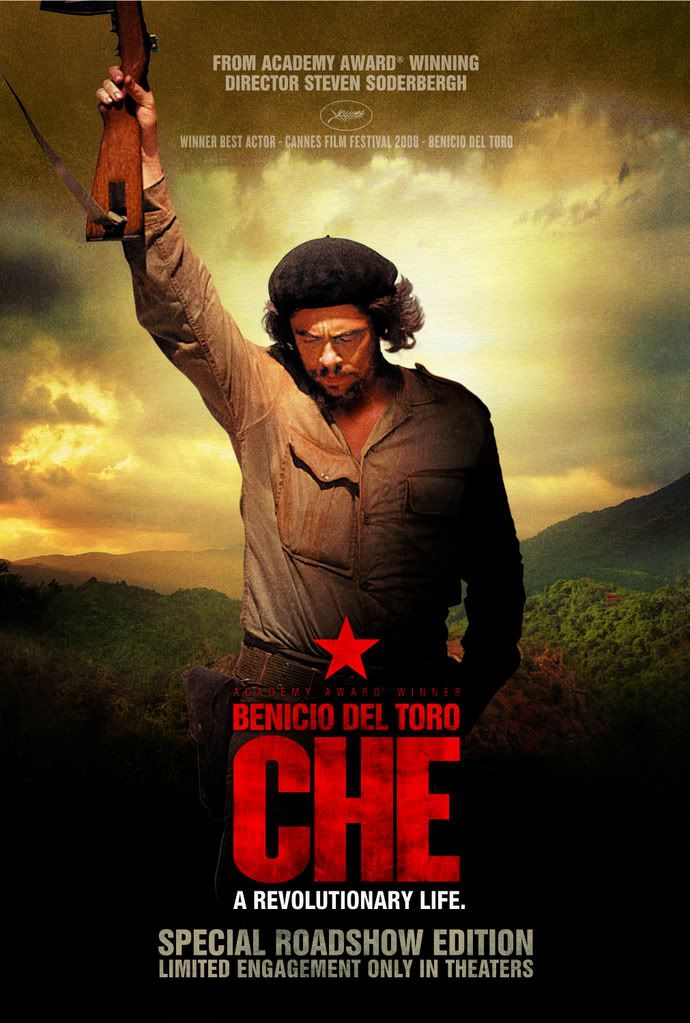
[Ed Note: Here begins our ensemble attempt to wrangle our, let's be blunt, surprising enthusiasms for this film. Since the film is so large (without ballooning), we thought it appropriate to situate our understanding in this epistolary form, a series of calls and responses, that may speak to the nature of Soderbergh's film and its ostensible subject—and how these braided objects nail their aims across manifold divides. Our aim, it should be obvious, is to make the polymath sing. Update: Click for Part Two and/or the whole series]
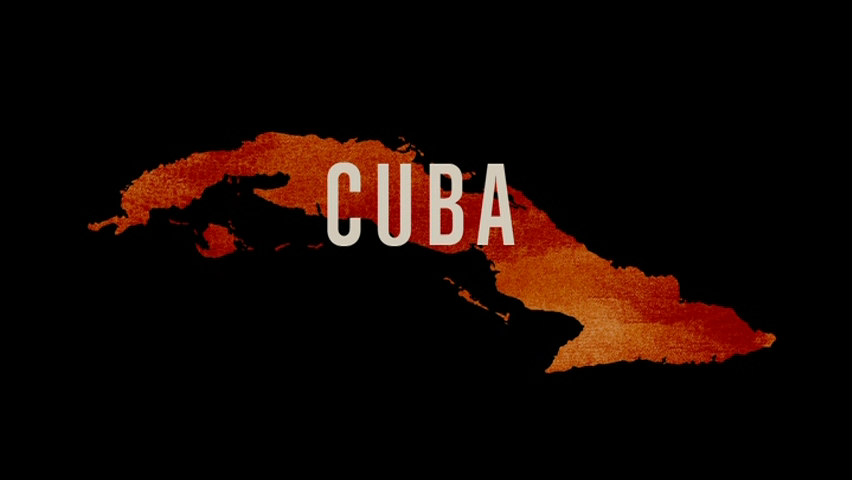
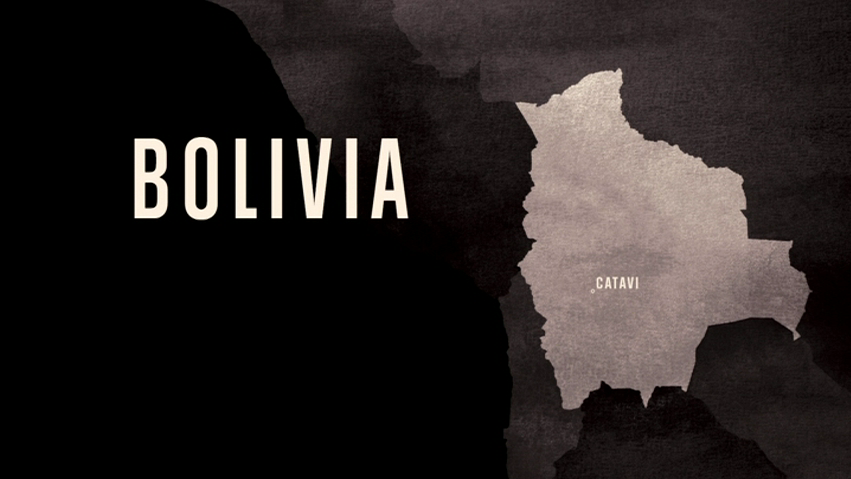
[Preamble notes from Mark: (1) Bay Areans, CHE: THE ROADSHOW is coming to us, hitting the Embarcadero tomorrow, Friday the 16th. And as a special treat, cuz you're all special, Soderbergh will be in house to answer our questions. For those in the East Bay not willing to cross the bridge or duck into BART, it will open as two films at the Shattuck Cinemas in Berkeley next Friday, the 23rd. (2) It may be useful to keep Pedro Costa's seminar (at ROUGE) on closed doors in mind. (3) Also owe a look to: The Cry at Zero.]
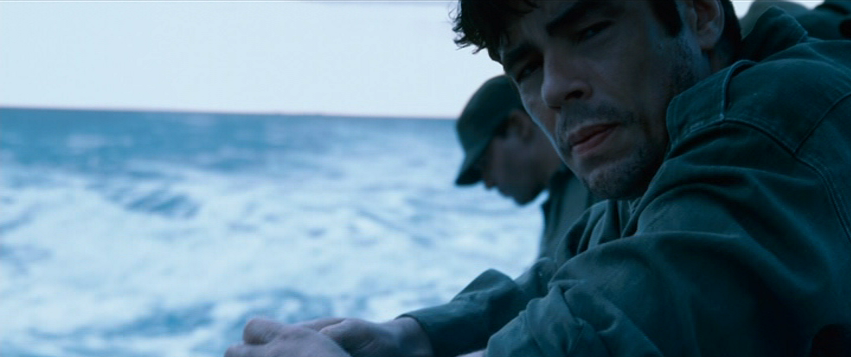
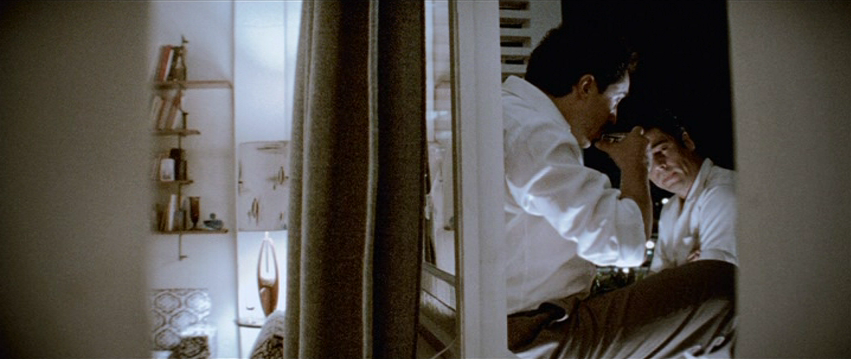
“Che is not about Che."
Ry,
After a single viewing of Che, this is all that seemed appropriate to say; the one thing that I (to whom confidence comes but rarely) am pretty damn confident of saying. And here it's remained, at the top of a piece of paper, awaiting the explication it seems to deny. And the question it implies produces a response both silent and choral, a nothing and an everything: “What is it about?”
Our first approach faulters. We stumble, or stop, and wonder, how do we approach Che? So much criticism up to this point, positive and negative, tends to description and observation (itself an impressive feat, given the scope and scale) over analysis or thesis; few attempts at a true approach to understanding the film have been made. But then: do we approach in the first place? And if not...? Aha, an avenue: only in resisting representation does the film approach its figure. The non-approach must be our approach, too.
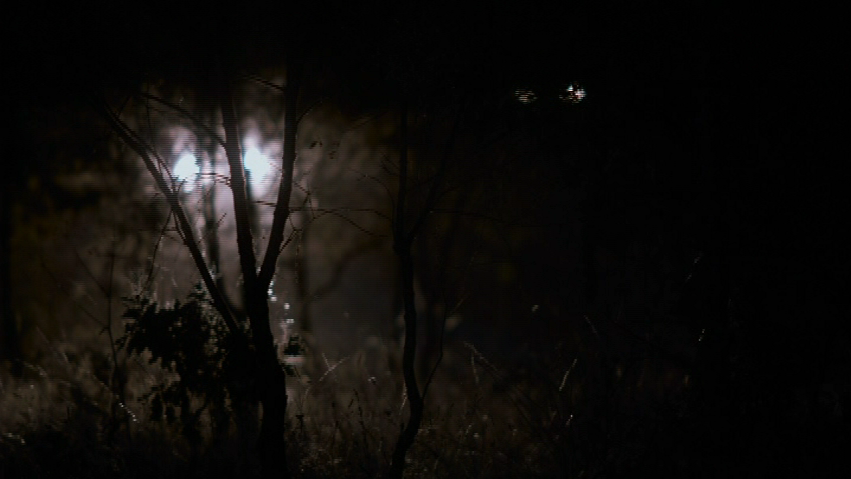
—certain films...are like doors, even if there are no doors in them. They resemble doors that don't let you enter as the protagonist of the film. You are outside. You see a film, you are something else...
For distance is a thing: tangible, like numbers. Especially for Soderbergh. Gaps, spaces, in-betweens...these are bricks, mortar. An absence or offsetting of one thing in relation to another, we come to see neither—or both, but only in the periphery—as our focus lands on distance. Indeed, it is focus, which seems so central to the film's technique that calls our attention to this: a camera—zooming in, zooming out—enacting distance.
But distance comes in many forms. If Cuba gives us Che, at times, at a physical proximity, distance is produced elsewhere. Take the battle sequences that are overlaid with Guevara discussing the ideologies, tactics, or justifications for the images we're seeing. His words don't explicate but complicate. Che doesn't speak in terms concrete enough for explanation. He is all ideal, totally abstract. Indeed, few figures in recent history have been as subject to abstraction as Ernesto Guevara, because, with him, it's easy: a man so determined by his ideals, so apparently detached from the material world, from his own body, that he already seems a vessel....
So, these sequences which might've been exciting and rousing are emptied out, abstracted. Again and again the image becomes an image of distance.
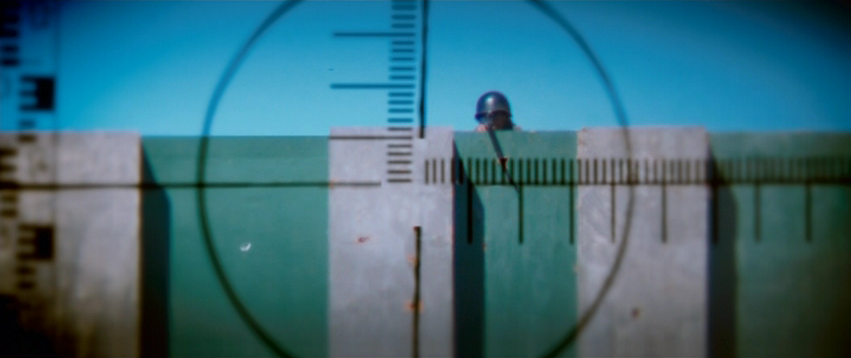
—that also is very important in the cinema, to love at a distance.
None of this is not distancing. I mean, it isn't aloof to us. We're not cast into indifference. I feel Che precisely because I am not asked to—better yet, I am asked to not feel for Che. The camera builds distances and in doing so builds avenues—long entrances. Entrances that are also closed doors. We see a film, we are something else... And the film, I think, like its subject, finds its center in love. But love undergoes a revision: think of Che's line that nobody is indespensible. This isn't intimate love. It's a re-vision of love—and, for that matter, equally of pain—that requires a response more than just reflex.
Our next approach then is a careful step, in step with the film, backwards. The images are abstracted: image distanced from itself. Meaning has been displaced, and the images, even those of triumph, now emptied out, take on the form of a lament. This is made clear in Bolivia, where everything feels, literally, dry, tapped. Even a downpour has no sense of moisture. In Cuba, death was Guevara's neighbor; present but only in the abstract, as one beyond your wall. Here, death is his house. “To survive here you have to fight like you're already dead.” This is the precise cry, the lament, love—a distance from yourself, an exile from yourself.
I can't help but think of those lovely moments of Che taking photographs of Bolivians. This is how he sees—through people. His revision (a second viewing) of self. Watching his body being carried away in a helicopter, their upward gazes correspond to his gaze, on the boat to Cuba, directed at Fidel.
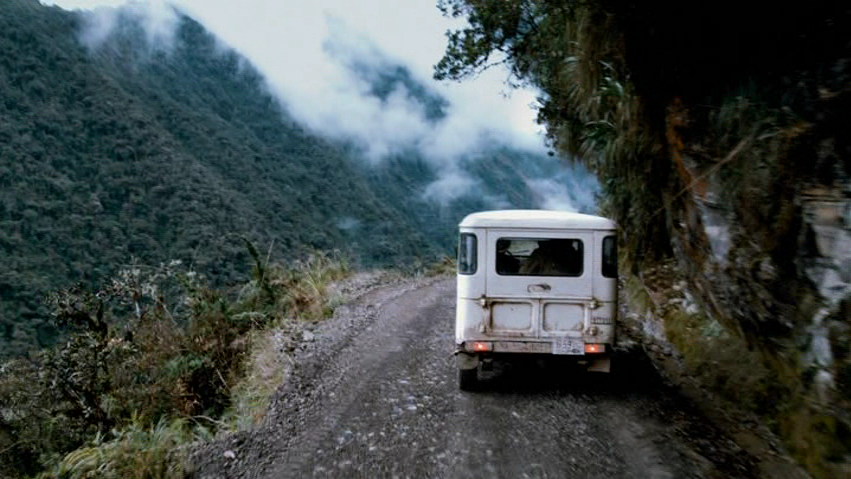
—...and there are two distinct entities.
I think, too, of a Caetano Veloso's lyric (one redeployed in Jorge Castaneda's Che biography, Compañero) that says, “Navigating is necessary, living is not.” This is a film to navigate. Because it's a film that navigates with no intention of arrival. It resists. Is itself and not itself. Is exiled within the very place of its exile. The non-approach is seeing the film from over there. And seeing the film as a door at best ajar. The farther back we go, the less that we see, the less that's shown, the more possible it is to open the closed doors. We have to recognize the two ever dividing entities, Che and Che, us and Che, Che and us.
I offer this up as a way, maybe, to begin talking about Che. A way of approaching, and if we're brave, opening, the closed doors. As Costa says, opening these doors is work. So let's work, Ry. I want to navigate. Tell me!
Ever one last re-vision,
Mark
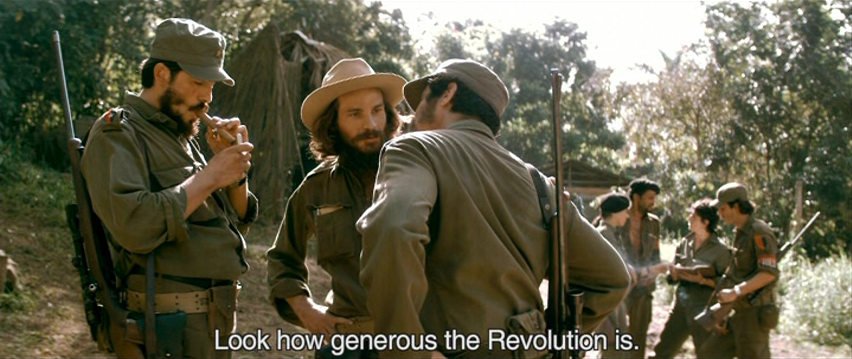




An interesting review on "CHE" Movie
ReplyDeleteThanks for posting.
KAte
Thanks for stopping by, Kate. I think Mark's take is very interesting, too, and I plan on responding. In fact, we hope to say some more soon. Please stay tuned!
ReplyDelete